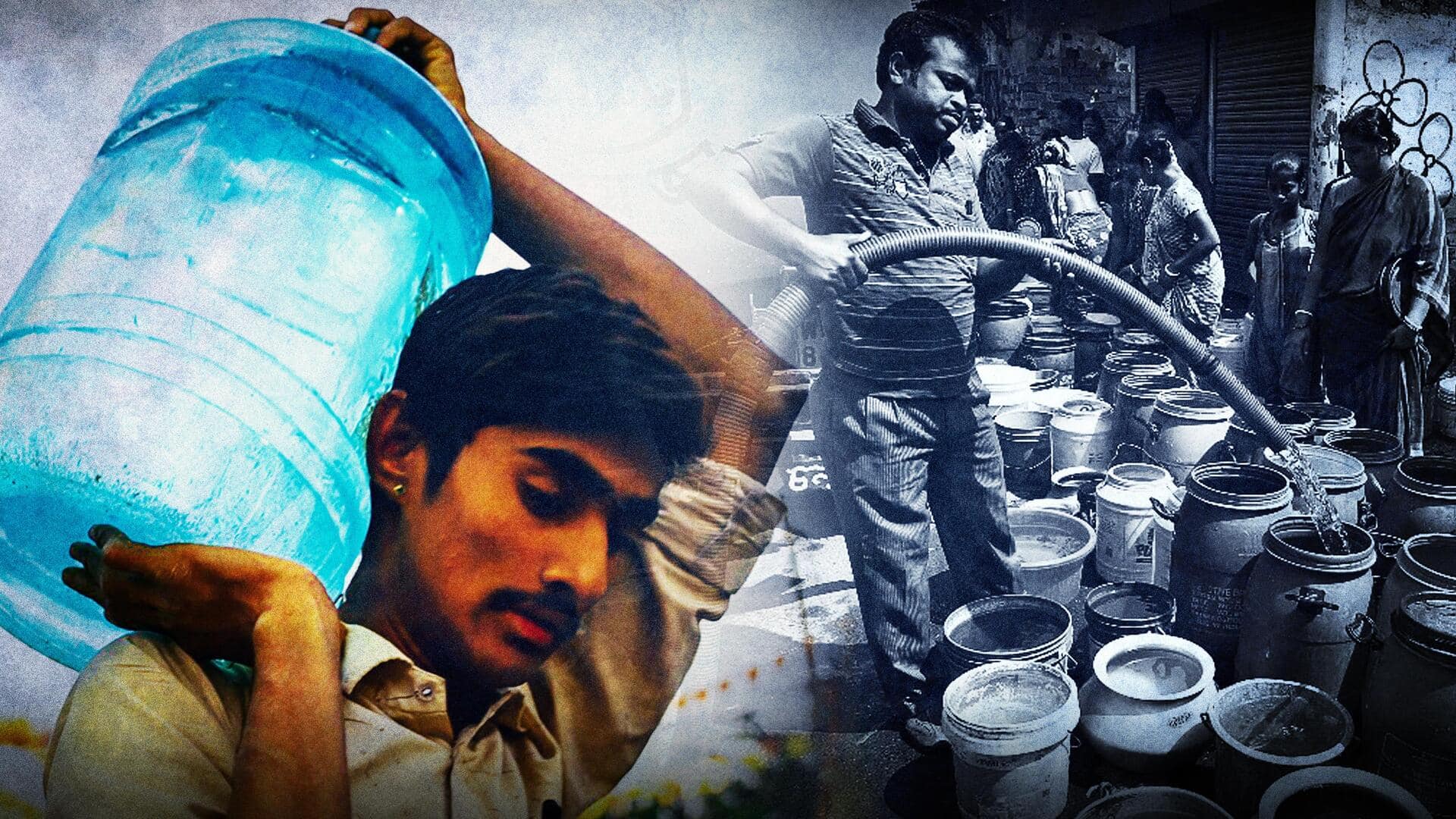
Can aerators halt Bengaluru water crisis by curbing wastage?
What's the story
Bengaluru—known as India's Silicon Valley—is experiencing one of the biggest water crises in its history This crisis stems from dwindling groundwater levels, shrinking reservoirs, insufficient rainfall, and inconsistent water supply. In response to the critical water scarcity, the Bangalore Water Supply and Sewerage Board (BWSSB) has introduced a "cost-effective approach" to curb water wastage by mandating the installation of aerators in taps for large users by March 31. Additionally, the BWSSB has encouraged all households to adopt this measure voluntarily.
Context
Why does this story matter?
Bengaluru is grappling with a daily shortfall of 500 million liters—equivalent to nearly one-fifth of its total daily demand. The state government has said that out of the city's 13,900 borewells, 6,900 have dried up. Notably, this scarcity extends beyond Bengaluru to Karnataka and even the neighboring states of Telangana and Maharashtra. According to the Centre's estimates from 2018, over 40% of Bengaluru's population may lack access to safe drinking water by the end of the decade.
Aerators
What are aerators
Aerators, small attachments fitting into or onto water taps, regulate water flow to prevent wastage. They come in three main types—aerated (mixing air with water), laminar (non-splashing stream), and spray (miniature shower). Tap aerators can reportedly reduce water flow from 12-18 liters per minute to three-six liters per minute—saving over 50% of water in kitchen and hand wash sinks without compromising functionality. Estimations suggest that installing aerators on 95% of taps could save up to 1,274 liters of water monthly.
Mandatory compliance
BWSSB's aerator installation schedule
The BWSSB has detailed the schedule for the implementation of the aerator, providing a voluntary 10-day window for installation from March 21 to 31. After this period, compulsory installation will be carried out by licensed plumbers at the owners' expense. This regulation extends to all cleaning taps in public areas including shopping centers, restaurants, and workplaces. Additionally, the Bengaluru municipality plans to conduct training sessions to raise awareness about the benefits of aerators.
Economic impact
Bengaluru water crisis triggers price rise
The escalating Bengaluru water crisis is driving up vegetable prices and casting uncertainty over the real estate market, prompting investors to reconsider their plans. According to a recent Nasscom-Deloitte study, IT firms are contemplating expanding outside the city due to these civic issues. With the crisis expected to worsen amid rising summer temperatures, Bengaluru's economy may face additional challenges in the future.